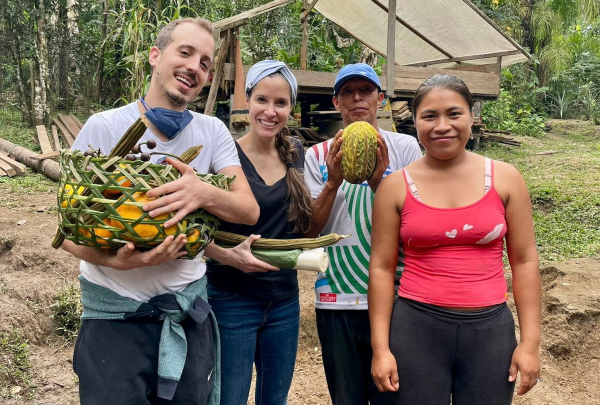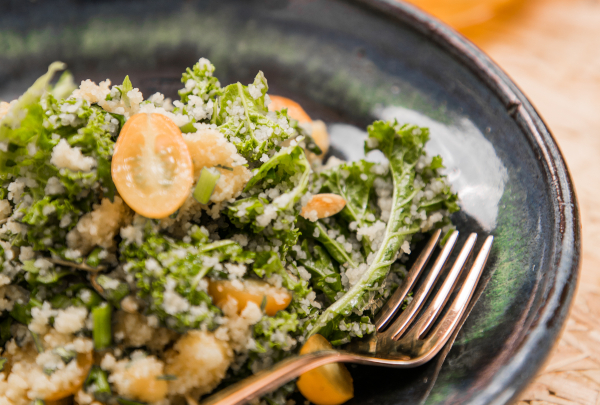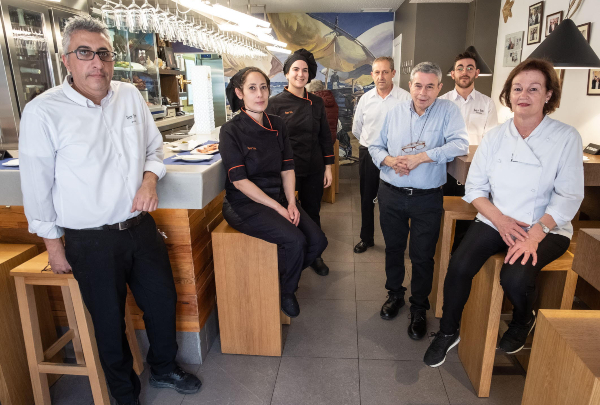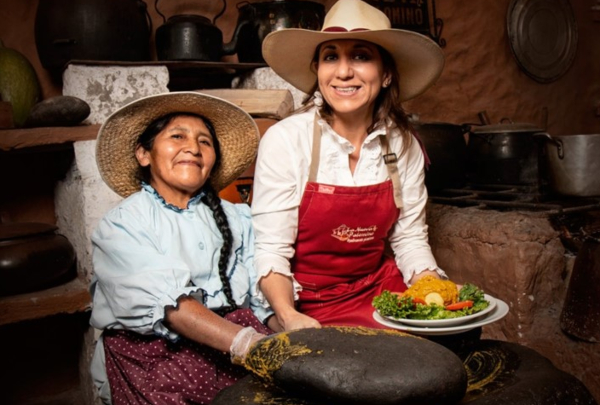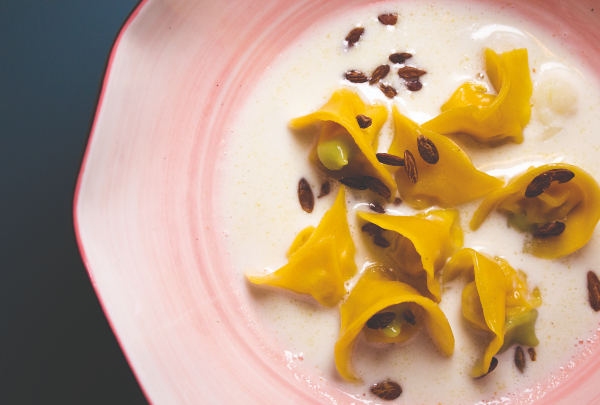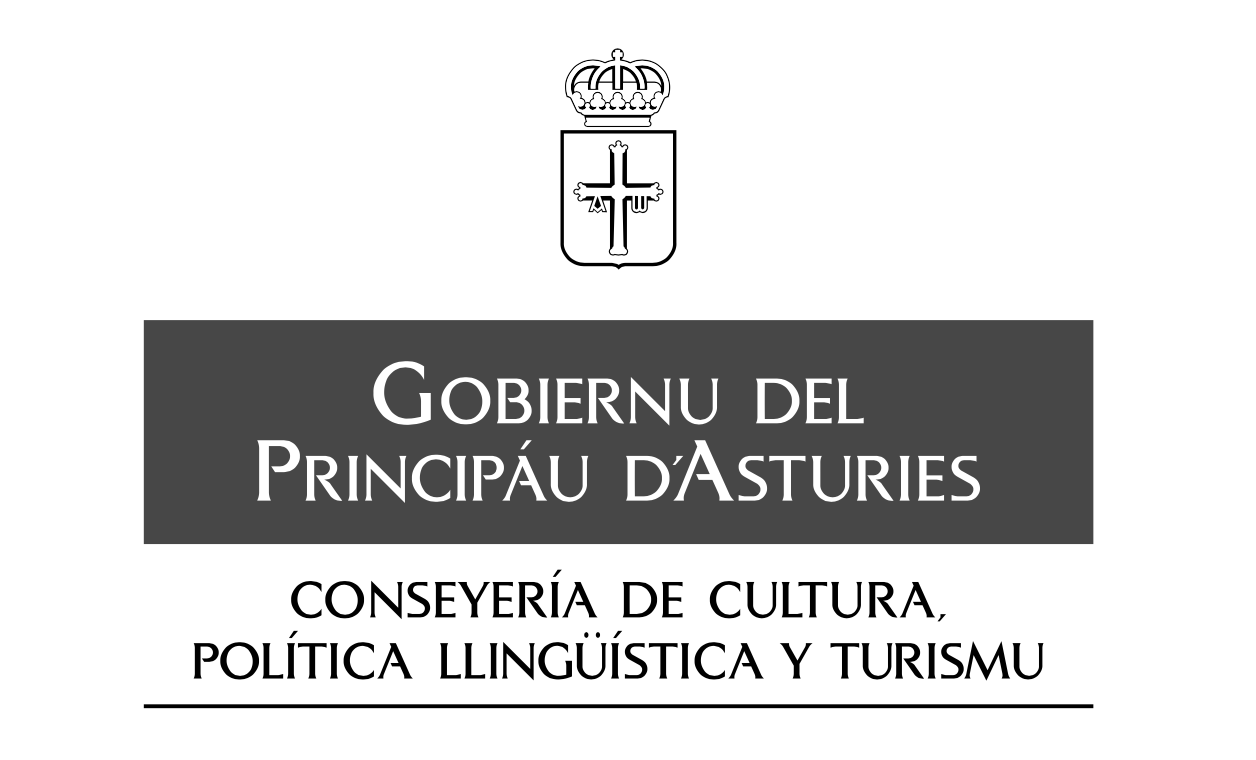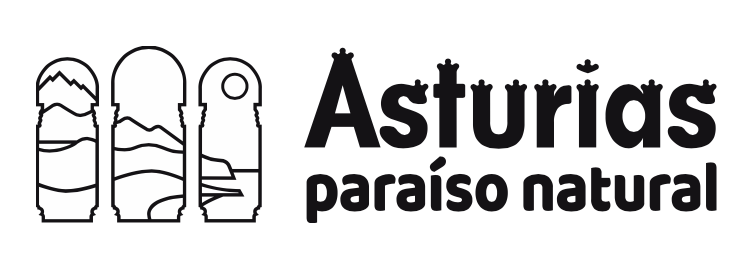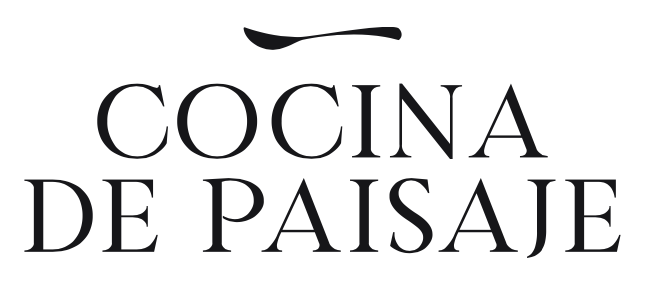Interview
Carme Ruscalleda: “Haute cuisine doesn't cover all the sauteing”
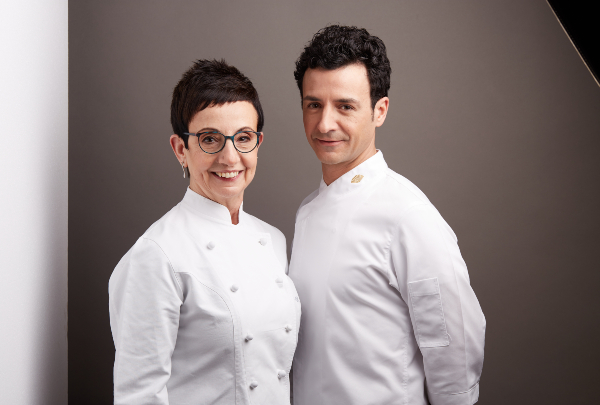
Three and a half years have elapsed since the closure of one of the temples of world gastronomy. In June 2022 the Sant Pau restaurant (Sant Pol de Mar, Barcelona) will be opening again with an new name, new decor and new fare, but the boss will have the same surname. Raül Balam RUSCALLEDA.
His mother's son, asked the boss woman to embark on an adventure that would be "different, simple at the outset, but that will listen to the customer in order to expand. And I was delighted". We are talking to the most-starred Spanish chef about this new phase starting at the Sant Pau, about her upcoming contribution to FéminAs, about "damn money" or about her view of the sector from the outside. "From the outside? I haven't stopped cooking! I'm still in Barcelona and Tokyo". You just can't beat her enthusiasm, even though she's about to hit 70 ... "It's a little scary, but I'm fine with it". We'd love to reach that age in that shape, with all that get-up-and-go.
On 8 May. 70 years old!
Scared? Happy?
I can't believe it. That first number 7 ... Life is cruel, but less so if you feel fine and are eager to go on learning. It's a little scary and imposing, but what's important is that the years shouldn't weigh heavily on you. I'm still keen to notch up more kilometres. But it's true all the same that it makes you think about the fact that you have a shorter path to tread in this world, and I hadn't thought about that until now.
But you're fine, both physically and mentally. How do you do it?
I've worked hard and I still work hard, but always with an orderly lifestyle. I've looked after myself, I eat very well indeed, I try to get exercise, and I also try to focus on emotional relationships, which are very important. It all adds up”.
‘Never trust a thin chef’, Massimo Bottura said in a book (the original title is “Never trust a thin Italian chef”. Let's forget about geography)…
Ha-ha-ha-ha. I've never been overweight. Even after I gave birth I got even thinner. But I must say the time I was thinnest in my entire life was in 1988, when we opened Sant Pau. It was because of the stress, nerves etc. It's true that historically the chef was a fat man with a big belly, but that's changed now, thanks be to God. Now people appreciate chefs who look after themselves and keep to a good diet, because a good diet means a lifestyle, not a punishment for eating.
Almost four years since Sant Pau closed down. What have you done since you closed? What is your day-to-day?
After 50 years non-stop, considering our age, we knew a slowdown was around the corner, and we wanted to leave everything just so. So we stopped at 65. I wanted a holiday, but holidays the way I understand holidays. To tell you the truth, I haven't stopped. I closed Sant Pau, but my restaurants in Barcelona and Tokyo are still open, and I still work for some media. And I give talks at schools, I do training ... And all that makes me very happy.
But changing after being used to a routine for 30 years can't be easy ...
Of course it's scary, but you can't think about that. You have to find hobbies, and I'm lucky in that my hobby is my work. But I have slowed my pace because I stopped my main area of work, but I still do what I like to do. Sant Pau prevented me from doing other things. I've always worked in services, and so when I closed down the restaurant, I did that to have more time to spend on my other businesses, and to do other things I couldn't do before because I didn't have time. Those of us who go into retirement ...
If you can call what you're doing retirement ...
Those of us who go into retirement have to continue our commitment to society. A commitment that compels us to get up eager to go on, keen to teach and learn, enthusiasm to get up in the morning.
Have you changed the time on your alarm?
No. I've always got up at 7. And I try to be in bed by 12. My daily round has changed because I'm not involved with Sant Pau, but not really that much. I still have breakfast at the same time, and my schedule is still carefully mapped out. I've always been an organised person, and that helps.
More time for Moments and for Sant Pau Tokyo.
I've always spent time on those businesses. The difference now is that I no longer have to steal any time from my personal life. But my life's script is still being written by cookery and the commitment I have to cookery.
Four years since Sant Pau closed down, but four strange years ... What would have happened if you had delayed closure for a couple of years?
Well, I'd have got the same as everyone else. The catering world has a bag of economic rocks attached that nobody can fix. But it's a world that's always forward-looking and seeks solutions. That's why this sector will always be alive and kicking. Personally, I admit we were lucky to close when we did.
I was going to ask how you view the kitchen from the outside, but I see now that I have to ask: What is your take on the Carme Ruscalleda sector?
My take is good. In life, when you go through a rough patch, you come out stronger. The sector has been hit very hard, but it'll be better afterwards. Rethinking crews, rethinking menus, spaces ... Getting better.
Give good quality of life to those around you so that they can give you good quality in their work
Rethinking crews, you say. You'll soon be visiting FéminAs, the 2nd International Congress of Gastronomy, Women and the Rural Milieu in Asturias from 16 to 18 May, an event which last year, among other issues, featured a call to improve the work/life balance and working hours for men and women working in the catering sector. Is this one of the lessons we learned from the pandemic?
Totally. The pandemic brought in working hours that are nothing more than quality of life for everyone, both the owners and the staff. By the time we closed down Sant Pau, we were already working those hours. We closed three days a week to meet that objective. It means giving good quality of life to those around you so that they can give you good quality in their work.
And does that mean raising the price of menus?
I've never been afraid to set a price I thought was fair. I've always made a stand for the price-quality ratio, but I must admit that I didn't charge what I should have, what my offer was worth. I should have charged more. But, because there's always that passion, and you want everyone to be able to go there, the price didn't go as far as it should have. Working in Tokyo and Barcelona helped me sort out the figures. I've always said that haute cuisine doesn't cover all the sauteing. And some people still feel we're expensive ... No, no, gentlemen. We're not.
I read that you would apply for public grants for this kind of business ...
I'll explain that: During the pandemic I was invited to the opera at the Liceu Theatre in Barcelona. At one point during the performance, you could see all the partners of the opera on the curtain. And I thought 'How nice'. How nice, that awareness of the authorities and large corporates to help out with something so huge that helps position the city. The money for that performance didn't come out of the seats they'd sold. It's not viable. It's down to the wishes of the artistes, of course, but it's also about the economy surrounding it all. And maybe the catering sector could do the same.
Do you mean subsidies?
No, not subsidies, because they sometimes lead to fraud. What I mean is assistance, their assistance to make sure we don't go under, because catering also reflects the strength of the country. It's the will of the country, the authorities and businesses, for us to keep working on an attraction that is so important to the world.
And generating more money would also help improve the conditions of the staff we were talking about earlier ...
Of course. Damn money ...
Cuina Sant Pau. And Raül is back
Change of tack. Sant Pau is back! What happened?
Well, what happened was that Raül has finally taken the closure on board. It's strange but, although the closure was a reasoned decision, properly thought out, a successful, cheerful event, Raül found it hard to accept. It was a year before he could go back. He was too upset, and he just couldn't do it. He went through a kind of mourning process. Then he went in, found it was a Rolls Royce, and got down to it. He suggested opening it with a more casual, different kind of cooking. And I was happy about that. Toni and I always made our life so complicated, and I like my children to do the same. And I think the choice of name is very good - Cuina Sant Pau - because all that's left of the original restaurant is the kitchen. He's changing all the rest of it.
It won't be a gastronomy outlet, then.
No. Raül wants to open a top-quality place, which is the way we understand cooking, but a simple place, for the moment. After that, we'll see. The other day he said to me himself: 'I'll start like you, bit by bit. The customer will show me the way'. I think it's a good script.
Does simple mean a meal ticket of ... 60?
And even less. And a menu proper.
El Jardí del Sant Pau is still going, the bar your daughter Mercè opened in the adjoining premises when Sant Pau shut down. Will they share the garden?
They might, but Raül probably doesn't need it. To start off with he has enough with the two dining rooms. We'll see how he gets started ... Prudence is a virtue.
How are things going for Mercè?
Fine. From day one she said she wanted a simple bar. Top-quality produce, but simple fare. And she's still doing that, and I think it's fantastic.
Will they complement each other?
I'm sure they will. And I'm delighted. Brother and sister get on very well.
Sant Pau Tokyo. How is that going?
A few problems there. Japan has had a few pandemic relapses, and gastronomically the city relies heavily on tourism. They say that, before the pandemic, there was one restaurant for every eight Japanese. Imagine the havoc that's been wrought. It's complicated, and a difficult undertaking from the economic point of view, but we'll go on. It's the ownership viewpoint too, for the moment. We're still open, with difficulties, but we've just brought out a new menu. Damn money ...
Talking of menus, Moments. You've just presented the new theme menu, based this time on the United Nations' 17 Sustainable Development Goals for 2030.
We like to illustrate stories with the best fresh produce. Now it's the turn of the UN's Goals.
Give me a recipe and a reason.
We'll begin with Goal 6, which is Clean water and sanitation. Water is a basic commodity. And, to present the concept, we live-cook a Mediterranean dashi in front of the diner. This is pure water, because you can't make the dashi without it, and kombu algae has to have spent the night in it. It's presenting on the boil with katsuobushi, a sliver of raw mushrooms, basil and a little Mediterranean sauté. It's an incredible transparent stock.
Goal 5 is Gender equality.
Nowadays the world isn't just male and female gender. There are many more. We must understand that there are many other kinds of intimacies we must have respect for. And we explain this goal with an egg recipe. We all started out as an egg, an embryo. And the egg grows and develops in some way or other. We cook it at a low temperature and cover it with a sauté and mousse with asparagus and banana. After that, give your imagination free rein. That's what the evolution of the world is: gender equality.
You started the theme menus at Sant Pau years ago ...
They began in 2015, when I presented a study of food colours at San Sebastian Gastronomika. During my talk there I wanted to demonstrate that it wasn't just a study, but that it could be applied, and I undertook a commitment to do a full colours menu, just for one month at the beginning. It was a success, and it went on for three months. And since then we haven't stopped doing the theme menus. All in all, we must have done more than 20 between Japan, Barcelona and Sant Pol.

